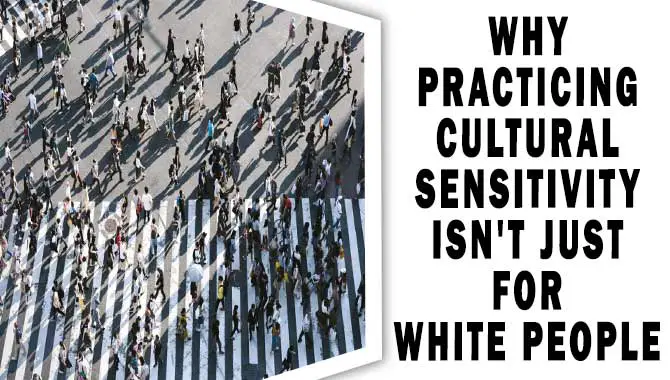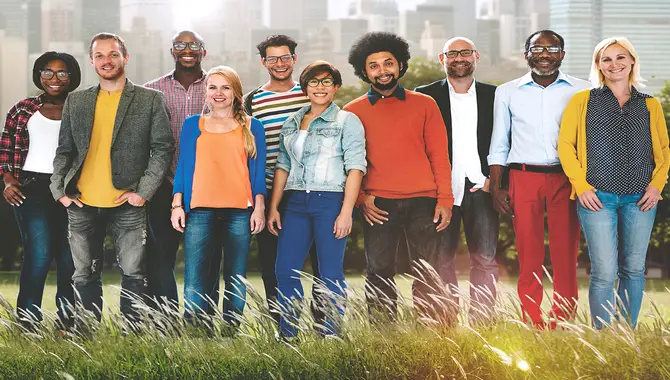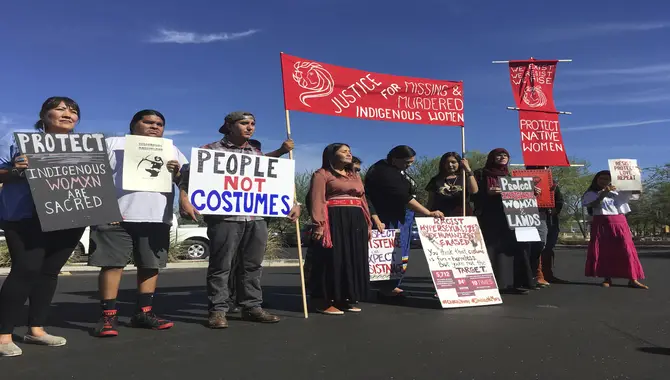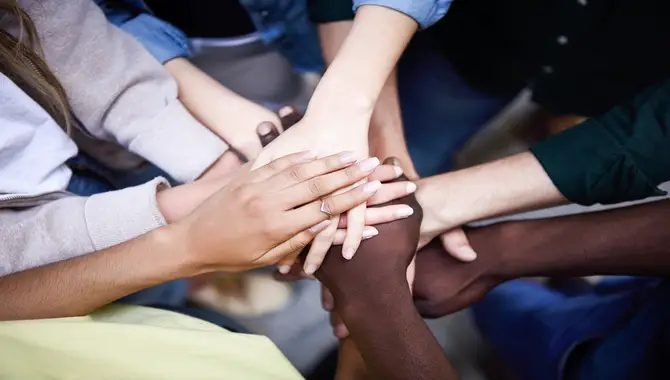Cultural sensitivity is often discussed in the context of race, but it doesn’t apply to people of color. Practicing cultural sensitivity can be beneficial for everyone – white or non-white alike.
In our current social climate, it has become vital for all of us to constantly be aware of the biases and prejudices still prevalent in society. While white people continue to be the center of attention and appreciation in our societies, other communities still face discrimination regularly.
If you feel guilty for not ‘doing enough’ to uplift and recognize the experiences of different cultures in your daily life, you are not alone. There is a lot of guilt that comes with living in a world where people who belong to marginalized groups often face oppression.
It might even feel like an extra burden when you see people doing things without acknowledging or respecting the impact it has on people belonging to marginalized groups. But fret not. We’re here to tell you why practicing cultural sensitivity isn’t just for white people.

What Is Cultural Sensitivity?
Cultural sensitivity is the ability to understand and appreciate the cultures of others. It isn’t a prerequisite for being open-minded or tolerant, but it can be beneficial for building relationships and creating positive interactions between people from different cultures.
Practicing cultural sensitivity can help individuals become more aware of their own cultural biases, and it can help them avoid insensitive comments and actions. Individuals with a strong cultural awareness are less likely to make assumptions or engage in behavior that could harm or offend others from different cultures.
Practice cultural sensitivity by being mindful of your surroundings and using respectful language when interacting with people from different cultures. By practicing cultural sensitivity, individuals can demonstrate their understanding of other cultures and foster greater mutual acceptance between people from different cultures. We can learn it through experience and education. Practice cultural sensitivity by being aware of the cultural context of situations and by using respectful language.
This helps build positive relationships between people from different cultures. It’s important to be aware of your cultural biases and avoid insensitive comments and actions. Culturally sensitive individuals can recognize other cultures’ unique perspectives, ideas, and values.
They can work effectively with people from diverse backgrounds and create partnerships that benefit everyone involved. By practicing cultural sensitivity, we can build connections between people from different cultures and societies. Everyone benefits when we are aware of our own biases and can take steps to correct them constructively.
The Truth Behind Why Practicing Cultural Sensitivity Isn’t Just For White People.

In today’s world, it’s important to be aware of different cultural norms to avoid misunderstandings. This can help to create a more harmonious and inclusive society. Practicing cultural sensitivity is not just for people of color. Everyone should be open-minded and accepting of others, regardless of their culture or race. This helps to create a more harmonious and inclusive society. By taking these steps, we can all become more culturally aware and respectful of other people and cultures. This will make the world a better place for everyone.
Implicit Bias And Cultural Appropriation
Implicit bias is the unconscious associations we make between certain groups of people and negative attributes. For example, when meeting new people, it might not be easy to immediately judge their personality and character. However, our quick assumptions can often lead to prejudicial actions and thoughts.
Cultural appropriation is taking elements of a culture without giving credit to the original creator. This can be seen in how some people adopt popular cultural trends such as fashion or music without crediting the original creators.
By recognizing implicit biases and cultural appropriations in ourselves and others, we can work to create a more inclusive society. It is important to acknowledge our implicit biases and pursue cultural justice to combat these forms of social injustice. By doing so, we can work towards creating a more open, respectful, and accepting society.
Privilege And Intersectionality
Intersectionality is a term that refers to the overlapping of different social identities. It is a critical concept for understanding how privilege and oppression operate in our society. Cultural sensitivity is an important tool for practitioners of diversity and inclusion.
Practicing cultural sensitivity can reduce the impact of privilege and oppression on marginalized groups. By recognizing and respecting the varying ways social identities intersect, practitioners can better work towards creating a more equitable and diverse workplace.
Cultural sensitivity can help reduce the impact of privilege and oppression on marginalized groups by acknowledging those who may be disadvantaged due to their race, ethnicity, gender, sexual orientation, or other social categories. By recognizing how social identities intersect, practitioners can better work towards creating a more equitable and diverse workplace. Intersectionality is vital for anyone interested in promoting diversity in today’s society.
White Savior Syndrome

The term white savior syndrome was first coined in 1978 by sociologist Hirokazu Yoshikawa. It refers to the tendency of white people to assume leadership roles in communities traditionally dominated by people of color. This can often lead to problems for the community, such as a loss of identity and culture. In some cases, it can also hurt the community, as it can give a false impression that everyone can be saved if only white people take action.
We often use the term to describe how white people interact with cultures that are different from theirs. Seeing these interactions as problem-based rather than inherently positive or negative makes it possible to see them for what they are: a chance to learn about different ways of life and to make an effort toward cultural understanding and tolerance.
Racism And Cultural Appropriation

Cultural appropriation is taking something from a culture that is not your own without permission. It can take various forms, from wearing traditional clothing without respecting the culture and traditions behind it to using cultural symbols without understanding their true meaning and significance.
Racism is the belief that one race is superior to others and can often happen on assumptions about cultural superiority. RACISM AND CULTURAL APPROPRIATION are often intertwined, as racism can be based on assumptions about cultural superiority.
As social beings, we all can recognize when our actions might perpetuate injustice or stereotypes. Therefore, we must strive to be more inclusive and compassionate towards each other, regardless of our background or beliefs. By practicing cultural sensitivity, we can help avoid racism and cultural appropriation.
The Power Of Representation
Cultural sensitivity is about awareness of the different cultures and traditions around us. This can help us build better relationships with those who live in these cultures. When we understand a different community’s social norms and customs, it becomes easier to communicate and engage with them.
Sharing our culture without understanding the context can lead to misunderstandings and conflict. If we are not respectful of other cultures, we risk inadvertently insulting or offending them. By respecting other cultures and traditions, we show mutual respect and demonstrate a willingness to learn from one another. This can go a long way in creating strong and lasting relationships with people from different communities.
The Invisibility Of Intersectional Identities
Intersectional identities can be difficult to identify and understand, given their hidden nature. Cultural sensitivity is a way of acknowledging and understanding the experiences and perspectives of different groups of people. Cultural sensitivity can help build trust and improve communication between groups when practiced correctly.
However, many people in positions of power need to be made aware of the benefits of practicing cultural sensitivity and often fail to recognize the different perspectives within their organizations. This can lead to discrimination and inequality within society. By recognizing intersectional identities and addressing issues of cultural bias and discrimination, we can work towards creating a more inclusive, respectful, and fair society for everyone.
The Erasure Of Marginalized Cultures
Cultural sensitivity is not just for white people. All of us must address the issue of cultural erasure in our society. There is a tendency for some groups to be marginal by others, which can lead to social and cultural injustices. We must know how our culture can privilege or marginalize other cultures. We can create a more inclusive and tolerant society by incorporating different cultural perspectives into our lives.
If we truly want to create a society that is tolerant and respectful of all people, we must start by being sensitive to the cultures around us. By paying attention to how different groups interact with one another and highlighting their unique contributions, we will learn about each other and become more united as a community.
The Need For All People To Practice Cultural Sensitivity

Cultural sensitivity is essential for everyone, regardless of race or ethnicity. Every person can be respectful and inclusive of other cultures. Cultural sensitivity is not a privilege that is only afforded to white people. Everyone has a role to play in creating a society that is tolerant and inclusive of all people.
Cultural sensitivity can be learned and practiced by everyone, especially white people. By consciously engaging in activities that explore other cultures, white people can learn about different perspectives, such as attending cultural events, reading books from other countries, or listening to music from elsewhere, and seeing how they can view their own culture from a broader perspective. This can help them become more accepting and supportive of diverse groups within their community.
Ignorance Or Arrogance Toward Other Cultures
When it comes to practicing cultural sensitivity, no one is indeed immune to making mistakes when it comes to this. Ignorance and arrogance can lead to problems in practice; ignorance is when we fail to acknowledge the culture and traditions of other people, while arrogance is when we believe we know better than other people about their culture and traditions.
Both are problematic as they can lead to a lack of mutual understanding and respect between different groups. If we truly want to practice cultural sensitivity, we need to recognize our biases and prejudices and work towards reducing them online. By doing so, we can better support an open and inclusive online community.
Exaggerating Or Denying The Experiences And Perspectives Of Other Cultures
Some people are afraid to be honest about the experiences and perspectives of other cultures to avoid taking responsibility for their actions. Instead, they exaggerate or deny the experiences and perspectives of other cultures to avoid acknowledging their prejudices and biases. By doing this, they can create misunderstandings and tensions between cultures. To effectively build relationships and create opportunities for collaboration, it is important to be truthful about the experiences and perspectives of other cultures.
The Importance Of Acknowledging And Addressing Social Justice Issues
Acknowledging and addressing social justice issues is essential for creating a more inclusive environment. Social justice issues are pervasive and affect everyone, including people of all ages, races, religions, sexes, abilities, and socioeconomic statuses. Acknowledging and addressing social justice issues can reduce tension and conflict by promoting inclusion and equity.
Through practices such as cultural sensitivity and social justice advocacy, you can better understand the perspectives of different groups. Acknowledging and addressing social justice issues is important in building relationships that promote social cohesion. By acknowledging and addressing social justice issues, you can create a more inclusive environment that acknowledges and addresses the needs of everyone.
It’s undeniable that social justice issues are top of mind for many people these days. The current political climate has made it especially important to be conscious of how our actions impact others. Achieving social justice means understanding and addressing systemic barriers – such as racism, sexism, homophobia, transphobia, classism, and ableism – that exist in society and hinder everyone from reaching their fullest potential. It also requires compassion and empathy for those who face discrimination every day.
As individuals, we have the power to make a difference by standing up against injustice whenever we see it (and_ even when we don’t see it). By speaking out against injustices wherever they occur, we can help create a more inclusive society where everyone can thrive.
Conclusion
Practicing cultural sensitivity is not just for white people. It is everyone’s responsibility to do so. Everyone should be aware of the social justice issues that surround them and should use the power of their voice to create a more inclusive society. By raising awareness about social injustices, we can empower ourselves and others to work toward a more just world. All people must practice cultural sensitivity to foster a more inclusive society.
We must realize and accept that our identities are intertwined and that they cannot be separated into neat categories of color or ethnicity. Everyone has a unique experience of life, and to understand this, we must first understand ourselves.
It is the responsibility of every person to educate themselves on social justice issues and think critically about them. The less we distance ourselves from other cultures and viewpoints, the more we can learn from each other. And the more we can understand our similarities as people, not just as members of a particular group.
Frequently Asked Questions
Why Do People Practice Cultural Sensitivity?
Cultural sensitivity is the practice of interacting with people from different cultures in a way that is respectful and understanding. This helps build relationships of trust and mutual understanding, which can ultimately reduce conflict and tension between different groups. Additionally, cultural sensitivity can reduce bias and promote understanding and acceptance of other cultures.
What Are The Benefits Of Practicing Cultural Sensitivity?
Practicing cultural sensitivity is one of the best ways to create a positive relationship with other people. When you are sensitive to other people’s cultures, you eliminate the possibility of causing misunderstandings or hurt feelings. This is because you take the time to learn about the customs and beliefs of the person you are interacting with before making any decisions.
Is It Necessary To Be Culturally Sensitive In Every Situation?
Each person’s sensitivities will vary depending on their background and cultural context. However, it is important to be sensitive to the cultural context in which an interaction occurs. This means understanding how people in that specific culture interact with one another and being aware of any potential sensitivities or triggers that may be present.
Can I Tell A Person’s Culture By Their Name Or Appearance?
It is important to be culturally sensitive when interacting with people from different cultures. Regardless of whether you know their specific culture or not, being respectful and cognizant of their customs and norms will reflect well on you as a person.
Are There Any Drawbacks To Practicing Cultural Sensitivity?
There are a few potential drawbacks to being culturally sensitive. One possibility is that you may become bogged down in cultural trivia. Instead of focusing on the conversation at hand, you may find yourself trying to educate your Conversational Partner about the customs of their culture.
Another downside to practicing cultural sensitivity is that it can sometimes lead people to feel like they are always right and that those from other cultures are always wrong. When this happens, communication becomes difficult, and conflicts can ensue

I’m a writer and blogger who loves to talk about entertainment, culture, and relationships. I love to share my thoughts and insights on these topics, and I’m always looking for new ways to engage with my readers. I’m also a big fan of learning new things, so I’m always exploring new areas of interest.
